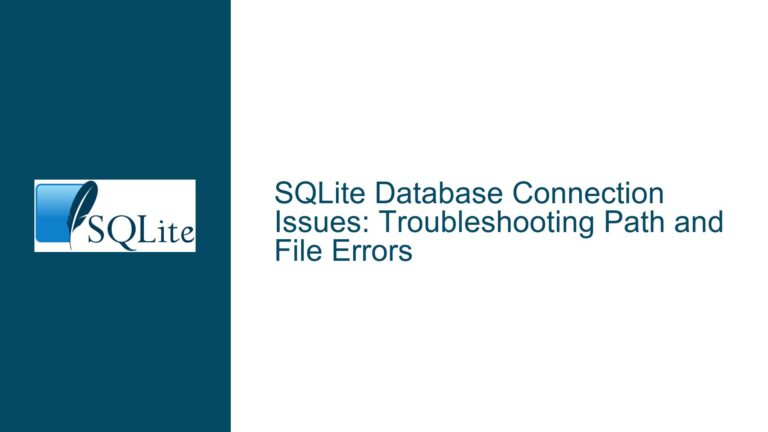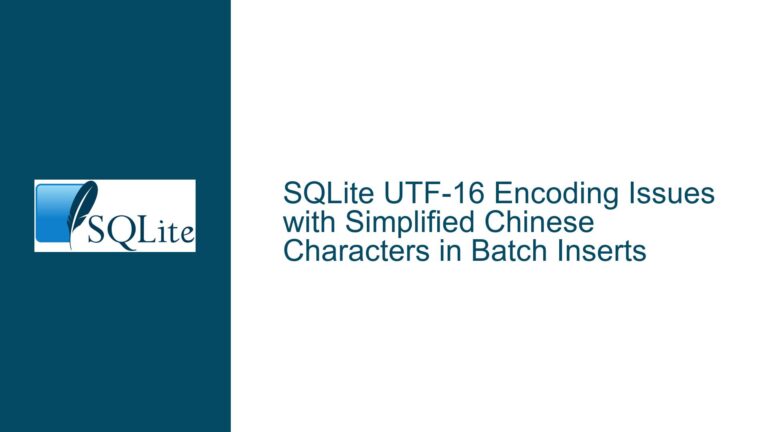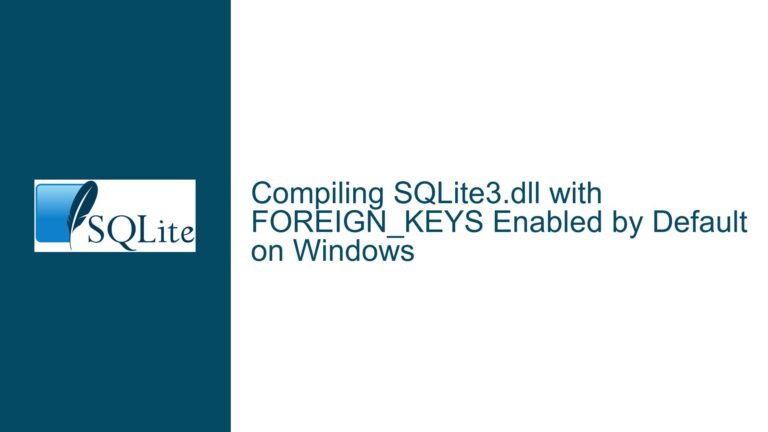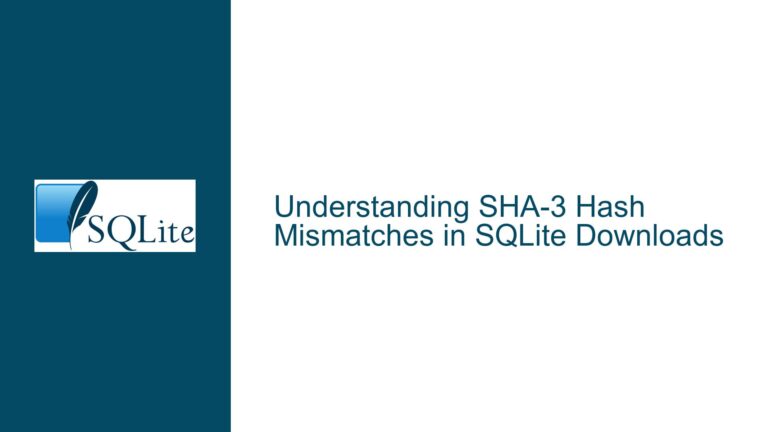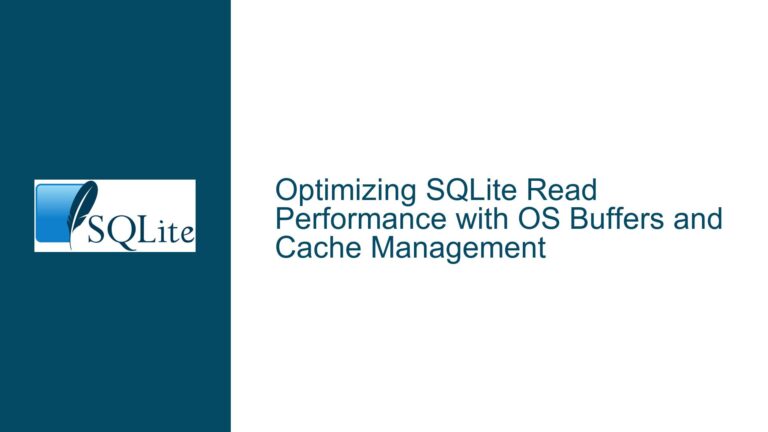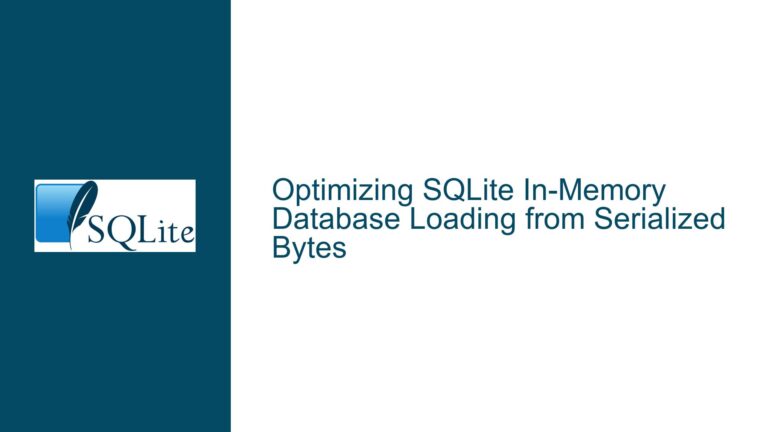SQLite WITHOUT ROWID Table Optimization and Functional Implications
SQLite WITHOUT ROWID Table Optimization and Functional Implications The use of the WITHOUT ROWID clause in SQLite can significantly impact both the performance and storage efficiency of a database. However, it also introduces nuances that can affect the functional behavior of the database, particularly when migrating from a standard table schema to a WITHOUT ROWID…

